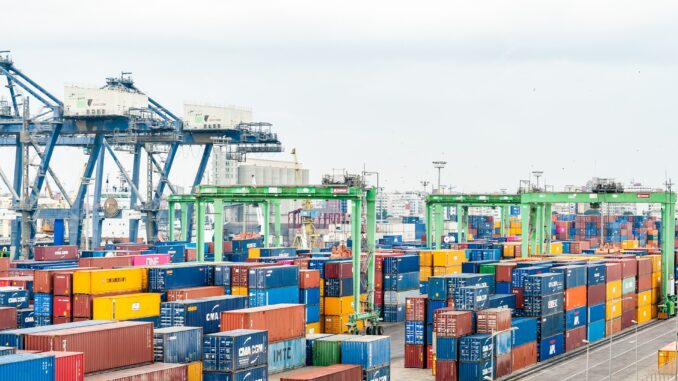
Flanders Investment & Trade has published their trade figures for the eleven-month period between January 2021 and November 2021 showing the impact of Brexit on trade, a year on from the UK leaving the EU. They show that, following a dip in UK exports to Flanders in 2020 of over 18% (when compared to 2019), exports in 2021 bounced back by a hefty 15.5% and are now only 5.7 below their pre-Brexit level.
Despite the overall improvement in 2021, some sectors of the UK economy continue to see a decline in exports to Flanders. There are also distortions caused by the pandemic.
One marked changed is in the textile sector, where most clothing and some raw materials have shown a steep decline. Overall textile exports from the UK to Flanders are down 26% on 2019. The exceptions are items where higher skilled work is required (e.g., Specialist textiles for technical use and woven fabrics). This is likely to be because the UK was not the country of origin for many of the textile products it used to export and, before Brexit, the UK was used as an entry point for the EU. Clothing and raw materials now enter direct from the originating country.
Carpet manufacturers suffered particularly badly during the pandemic, as so much of their business is derived from the hotel and events industry, but the sector has bounced back. UK exports to Flanders of carpets are now 43.5% higher than they were in 2019 having decreased by 16% in 2020.
The UK motor vehicle industry also continues to decline, and now shows a reduction of nearly 40% in exports to Flanders since 2019. There are likely to be a combination of factors behind this steep decline. The car industry has been struggling to source parts for new cars so there have been fewer news cars manufactured in the UK. In addition, the 2019 figures, as with textiles, are likely to include vehicles that were not manufactured in the UK and, post Brexit, are now exported direct to the EU from their country of origin.
Astrid Geeraerts, Head of Investment at Flanders Investment & Trade (FIT) commented; “It is always difficult to be certain about the impact of multiple different factors on export figures. We know that it’s been challenging for UK companies, post Brexit, as we’ve actively helped many of them enter the EU. However, overall, we’re reassured that trade is picking up again and the special relationship we have with the UK has been retained. I believe that FIT’s proactive role in supporting UK companies, has played a part.”